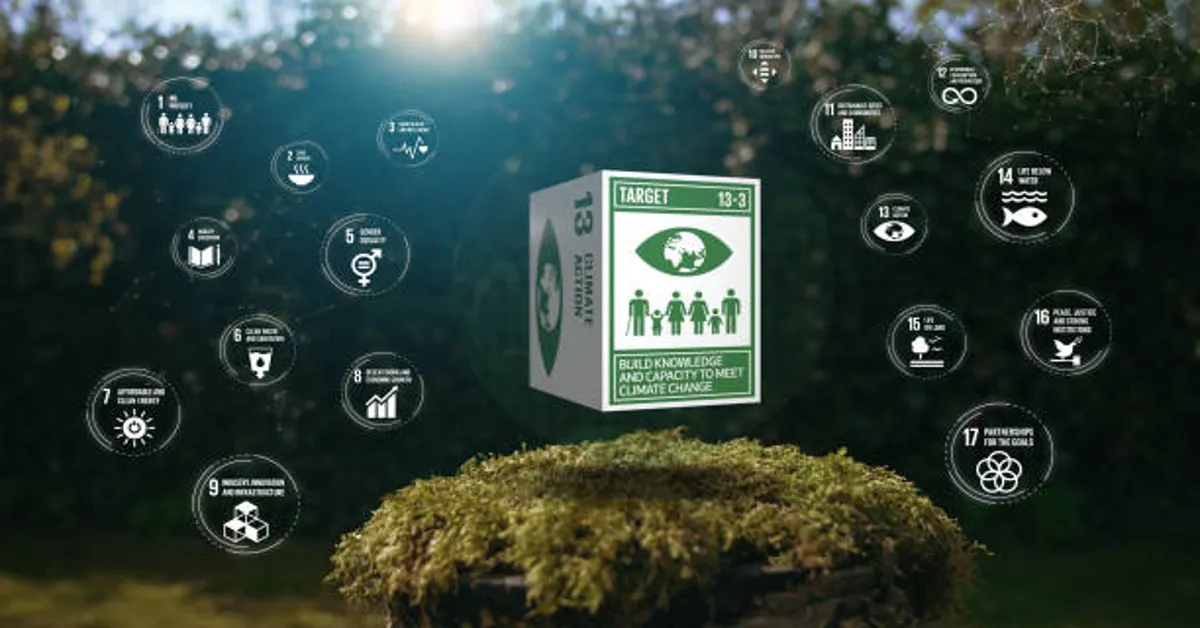Humanity has long envisioned utopias—perfect societies where everything functions harmoniously. From the philosophical musings of Plato to the idealistic writings of Thomas More and the futuristic societies imagined in science fiction, utopia has remained a compelling vision. However, most utopian visions have either failed to account for practical limitations or have remained purely theoretical. Enter “newtopy”—a modern, progressive, and realistic framework for developing better societies. Unlike traditional utopian concepts, newtopy isn’t about creating flawless worlds; rather, it’s about constructing forward-thinking, sustainable, and adaptable systems that prioritize equity, innovation, and resilience.
This article delves deep into the core pillars, philosophical foundations, practical implementations, and global relevance of new topy. It presents an expansive view of how this concept can influence urban planning, technology, governance, education, and human interaction. By the end, you’ll understand how new topy is not a far-fetched dream but a guiding principle toward a more livable, ethical, and regenerative world.
Defining Newtopy: The Evolution of Utopian Thought
To grasp the full meaning of newtopy, one must first understand the shortcomings of historical utopian models. Traditional utopias often emerged in reaction to societal flaws—poverty, injustice, environmental degradation, war—but attempted to fix them with top-down idealism that lacked flexibility. These models, while philosophically rich, often stumbled when subjected to real-world application. Their rigid structures could not accommodate diversity, dissent, or technological change.
Newtopy, on the other hand, is built on the understanding that perfection is an illusion. It recognizes that human society is ever-evolving and that a “perfect” society must itself be dynamic, inclusive, and self-correcting. Rather than erasing differences, newtopy embraces pluralism, encourages participation, and prioritizes well-being over uniformity.
At its core, newtopy is not a static place but a set of principles and processes. It draws from ecological wisdom, social justice, digital innovation, and philosophical pragmatism. It’s not about escaping from reality but reshaping it with intention and responsibility.
The Foundational Pillars of Newtopy
Newtopy stands on six interconnected pillars that guide its vision:
a. Ecological Sustainability
Environmental degradation is one of the most pressing global issues. Newtopy emphasizes regenerative living—going beyond sustainability to actively restore ecosystems. Cities and communities in a newtopy model would integrate renewable energy, green architecture, permaculture-based agriculture, and circular economies. The goal is to harmonize human activity with natural rhythms, not dominate them.
b. Technological Integration with Ethics
Technology is a double-edged sword. While it offers unprecedented power to solve problems, it also risks dehumanization and surveillance. Newtopy promotes ethical tech—AI guided by transparency, decentralized networks that protect privacy, and open-source systems that democratize innovation. Technology should serve people, not the other way around.
c. Social Equity and Inclusion
No society can be called utopian if it marginalizes any group. Newtopy calls for dismantling systemic inequalities—be they based on race, gender, economic status, or ability. It promotes inclusive governance, universal basic services (healthcare, education, housing), and mechanisms for participatory democracy. Justice in a newtopy isn’t just retributive; it’s restorative and transformative.
d. Localism with Global Awareness
While globalization has connected the world, it has also led to cultural homogenization and ecological exploitation. New topy encourages localized economies and cultural preservation, all while maintaining a global consciousness. Communities should be resilient, self-reliant, and culturally unique, but interlinked through cooperation, not competition.
e. Continuous Learning and Conscious Education
Education in new topy is not just about academic achievement; it’s about cultivating empathy, critical thinking, and emotional intelligence. Lifelong learning, experiential education, and creative exploration are central. Learning institutions become community hubs for dialogue, innovation, and cultural exchange.
f. Holistic Health and Well-Being
Health is not merely the absence of disease but the presence of vitality—physical, mental, emotional, and spiritual. New topy promotes integrated health systems that combine medical science with holistic practices, nutrition, physical activity, community connection, and mental health support.
Urban Design in the Newtopy Framework
Cities are the engines of civilization, yet many are congested, polluted, and stressful. A new topy-inspired urban environment reimagines space, time, and movement.
- Green Infrastructure: Parks, rooftop farms, vertical gardens, and restored wetlands become integral to urban layouts.
- Mobility Networks: Walkable neighborhoods, zero-emission public transport, and bike highways reduce car dependency and carbon output.
- Mixed-Use Zoning: Living, working, learning, and leisure areas are seamlessly integrated, reducing the need for long commutes and promoting work-life balance.
- Digital and Physical Fusion: Smart cities in a new topy are not cold, data-driven surveillance states. Instead, they use digital tools to enhance community cohesion, provide real-time feedback for urban planning, and ensure resource efficiency.
Cities are designed for people, not vehicles or corporations. Public spaces are inclusive, accessible, and designed for community engagement.
Economic Structures: From Scarcity to Sufficiency
In the current global economy, inequality and unsustainable growth dominate. New topy envisions a post-growth economy—where quality of life matters more than GDP, and the focus is on sufficiency rather than accumulation.
Key features include:
- Universal Basic Income (UBI): A guaranteed income to provide security and freedom of choice.
- Cooperative Enterprises: Businesses owned and governed by workers and communities.
- Time Banking: Exchanging time and services instead of money, fostering mutual support.
- Resource-Based Economy: Allocation based on need and sustainability, not profit.
Rather than hoarding wealth, a new topy economy encourages circulation, stewardship, and gratitude.
Governance in a Newtopy Society
Traditional political systems often breed alienation and inefficiency. New topy governance is participatory, transparent, and accountable. Its structure is decentralized, empowering local communities while connecting them to broader regional and global networks.
- Deliberative Democracy: Citizens participate directly in shaping policies.
- Civic Technology: Blockchain-based voting, transparent budgeting, and digital town halls enhance civic engagement.
- Commons Management: Natural resources and digital assets are managed as commons, not commodities.
Governance is not about ruling from above but co-creating from within. Leadership is servant-oriented, based on integrity and collaboration rather than charisma or coercion.
The Psychological Dimension: Mindsets and Culture
Culture shapes consciousness. In a new topy society, cultural narratives center on cooperation, creativity, respect, and resilience. Media, arts, and storytelling are used to heal collective traumas, inspire action, and celebrate diversity.
Mindset shifts include:
- From competition to collaboration
- From exploitation to stewardship
- From scarcity to sufficiency
- From fear to trust
Community rituals, festivals, and art are not afterthoughts—they are central to social cohesion and identity.
Case Studies and Prototypes of Newtopy in Action
Though new topy is a vision, many communities and organizations worldwide are already embodying its principles:
- Ecovillages like Findhorn (Scotland) and Auroville (India) demonstrate sustainable living.
- Transition Towns are rebuilding local economies in response to climate and energy crises.
- Digital democracies like Estonia show how civic tech can revolutionize governance.
- Worker-owned cooperatives in places like Mondragon (Spain) offer models of ethical enterprise.
These are not utopias in the traditional sense but living laboratories of the new topy model.
The Role of Technology in Newtopy Evolution
Far from being anti-technology, newtopy embraces responsible innovation. Key technologies include:
- Artificial Intelligence used for solving climate modeling, health diagnostics, and education personalization.
- Decentralized ledgers for secure identity, fair voting, and community currencies.
- IoT and sensors for monitoring environmental health and optimizing infrastructure.
- 3D printing and maker labs for localized manufacturing and creative expression.
However, all tech development in a new topy is guided by ethics councils, stakeholder consultations, and human-centered design.
Newtopy as a Response to Global Crises
Climate change, pandemics, inequality, war—our planet faces numerous existential threats. New topy is not a luxury but a necessity. It presents a path forward that is not naïve but courageous.
It bridges:
- Hope and pragmatism
- Innovation and tradition
- Individual freedom and collective responsibility
New topy is not about building walls but growing networks. It’s about saying “yes” to life in all its complexity and co-creating a regenerative civilization.
Conclusion: Newtopy Begins With Us
Newtopy is not a place we migrate to but a mindset we cultivate. It invites us to reimagine our relationships—with nature, with each other, and with ourselves. It doesn’t promise perfection but progress. It doesn’t eliminate conflict but transforms how we engage with it.
Each act of kindness, each community garden, each ethical startup, and each dialogue about shared values is a brick in the foundation of a new topy society.
While it may not yet have a flag or a capital, new topy lives wherever humans dare to believe in better—and act accordingly.
ALSO READ: Webfreen.com Fashion: A Deep Dive into Style, Identity, and Modern Clothing Culture
FAQs
1. What does “newtopy” mean?
Newtopy refers to a modern vision of utopia that embraces sustainability, social justice, innovation, and adaptability over perfection.
2. How is newtopy different from traditional utopias?
Unlike static, idealized utopias, newtopy is dynamic and practical, focusing on ethical frameworks and realistic, regenerative systems.
3. Is newtopy achievable in today’s world?
Yes, many communities are already implementing elements of newtopy through sustainable living, digital democracy, and inclusive governance.
4. What role does technology play in newtopy?
Technology in newtopy is used responsibly to empower people, protect privacy, and support sustainability—not to dominate or exploit.
5. Can individuals contribute to building a newtopy?
Absolutely. Small actions like mindful consumption, community participation, and ethical innovation all contribute to the larger vision of newtopy.









